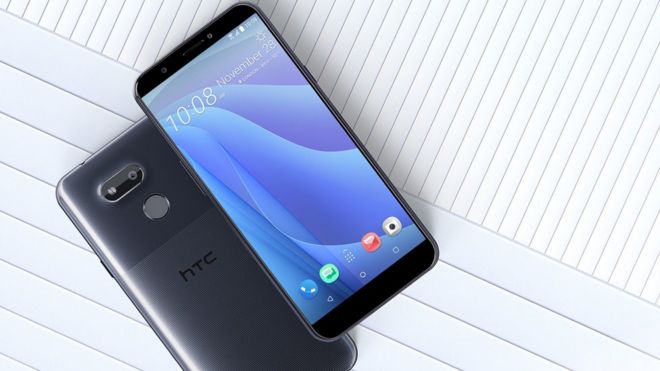
HTC is pulling its smartphones from two of China’s largest online marketplaces, raising concerns about the brand’s future.
The firm was the first to sell an Android handset in 2008.
But it has seen its global share of the smartphone market drop from a peak of 10.7% in 2011 to 0.05% today, according to market research firm IDC.
However, the Taiwanese company has said it still intends to release at least one new model later this year.
HTC posted a message to Weibo – a Twitter-like service popular in China – on Friday declaring that it was closing its online shops on Alibaba’s Tmall and JD.com’s Jingdong.
A spokeswoman told the BBC there was nothing further to add at this time.
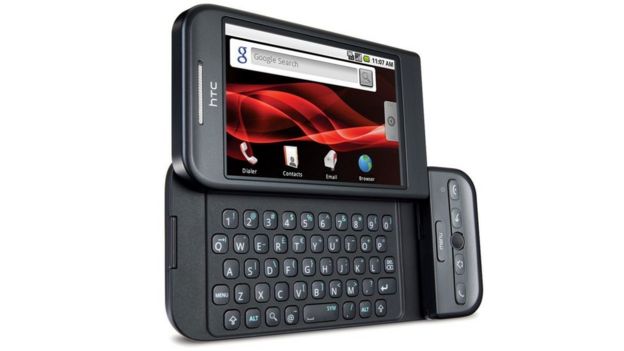 Image copyrightHTC
Image copyrightHTCThe two stores account for hundreds of millions of customers.
- Google delivers Pixel phones price shock
- When will you next buy a phone?
- Broken screens cause Galaxy Fold headache
Although HTC described the move as being temporary, it gave no indication as to when it might restore the operations or any explanation for the move, beyond saying it was in line with a “long-term business strategy”.
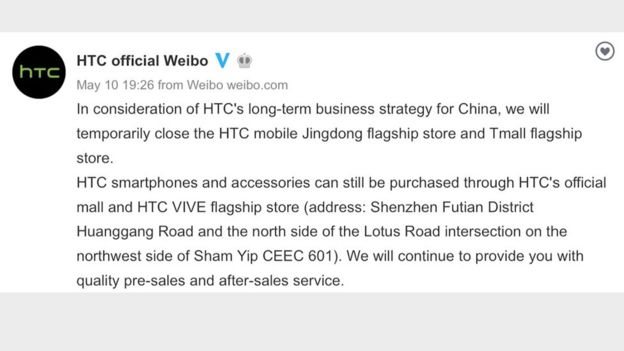 Image copyrightWEIBO
Image copyrightWEIBOThe company has already reduced its activity elsewhere.
In the UK, for example, Carphone Warehouse, O2 and EE no longer offer its handsets, leaving HTC reliant on its own website and Amazon to drive sales.
One expert said it was now questionable how long the business would continue to be an active smartphone-maker.
“All the signs are that it’s not viable for them to do business in China, and China is one of the markets which has the potential to provide the volume that companies like HTC need to survive in the smartphone business,” commented Ben Wood from the CCS Insight consultancy.
“If you look at the West, companies like Oppo, Xiaomi, and Huawei are all prepared to make significant marketing investments to support their product ranges.
“And that’s something that HTC just can’t afford to do.”
 Image copyrightGETTY IMAGES
Image copyrightGETTY IMAGESHTC posted a 11.6bn Taiwanese dollar ($372m; £285m) net loss over the 12 months leading up to April.
However, its balance sheet shows it still has a sizeable cash cushion of 29.3bn Taiwanese dollars, thanks in part to the sale of much of its smartphone design team to Google last year. The engineers now work on the search giant’s Pixel range.
Blockchain phones
The focus of HTC’s current efforts is virtual reality. It recently launched a headset that does not need to be tethered to a PC – the Vive Focus Plus.
In February, it also unveiled a 5G hub to provide homes and offices with use of next-generation mobile networks.
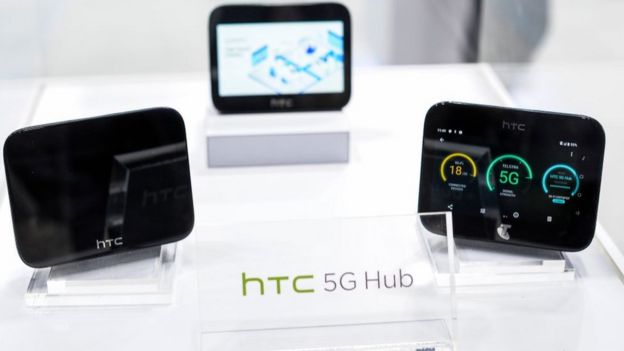 Image copyrightHTC
Image copyrightHTCDespite the loss-making nature of its smartphone division, HTC has, however, signalled that it is not yet ready to give up on the business.
On Saturday, one of its executives said that HTC remained committed to releasing a follow-up to the Exodus 1 – a so-called “blockchain phone” that provides a hardware wallet and tools to manage owners’ crypto-currencies.
Phil Chen took part at the Magical Crypto Conference in New York, where he said that the forthcoming device would be both cheaper than its predecessor and capable of verifying blockchain transactions.
But Mr Wood is unconvinced of the product’s appeal.
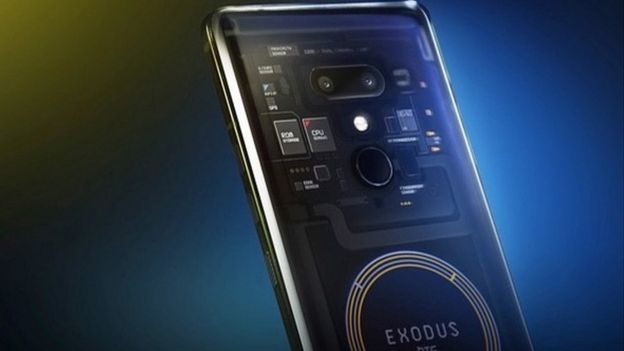 Image copyrightHTC
Image copyrightHTC“It appears that HTC has accepted that it can’t really compete in the mainstream mobile market any more,” he said.
“And quite frankly, it’s hard to believe that that the blockchain phone is anything more than a curiosity.
“While Google has provided them with a cash injection… that money won’t last forever.”
[“source=bbc”]










